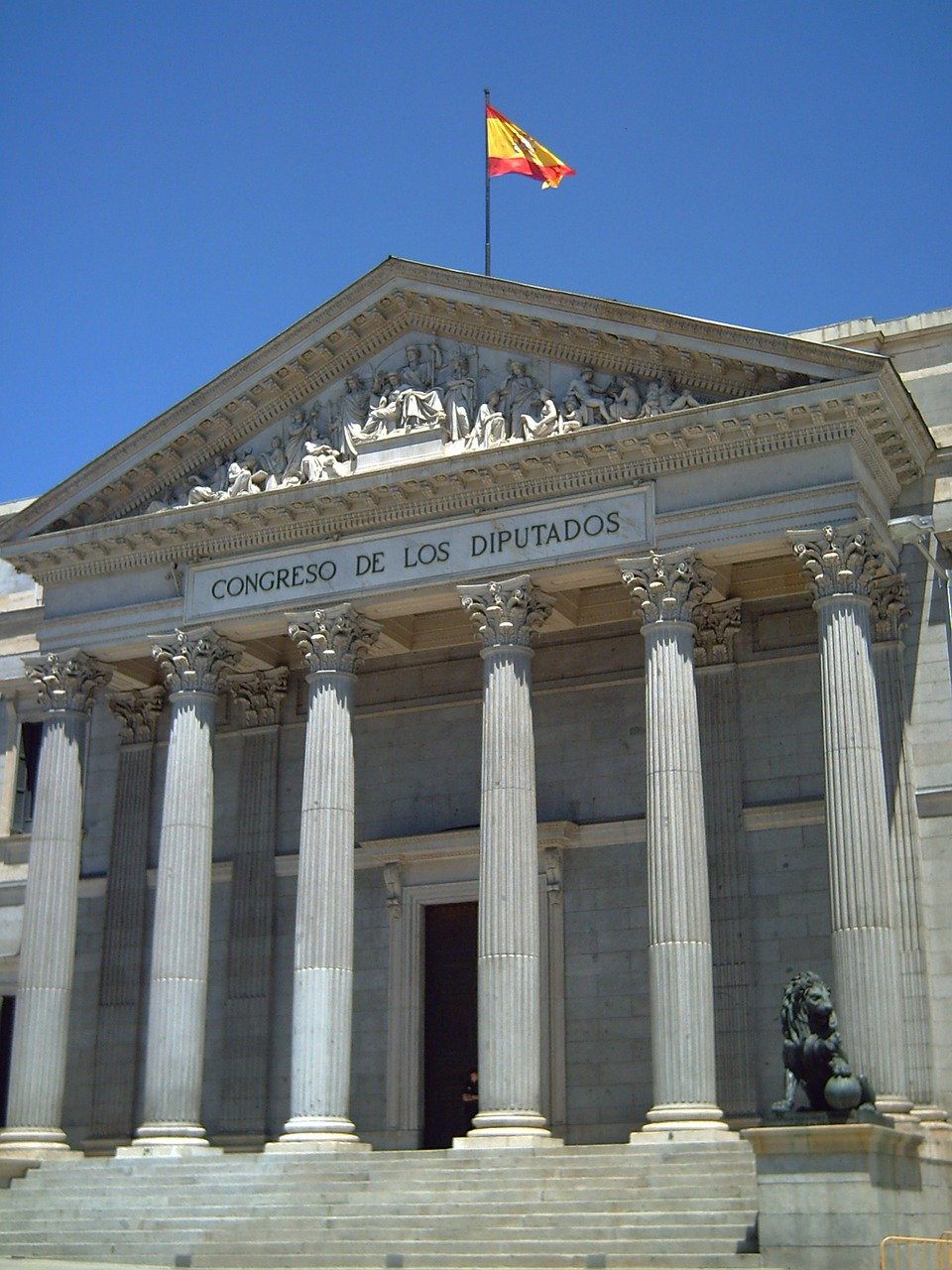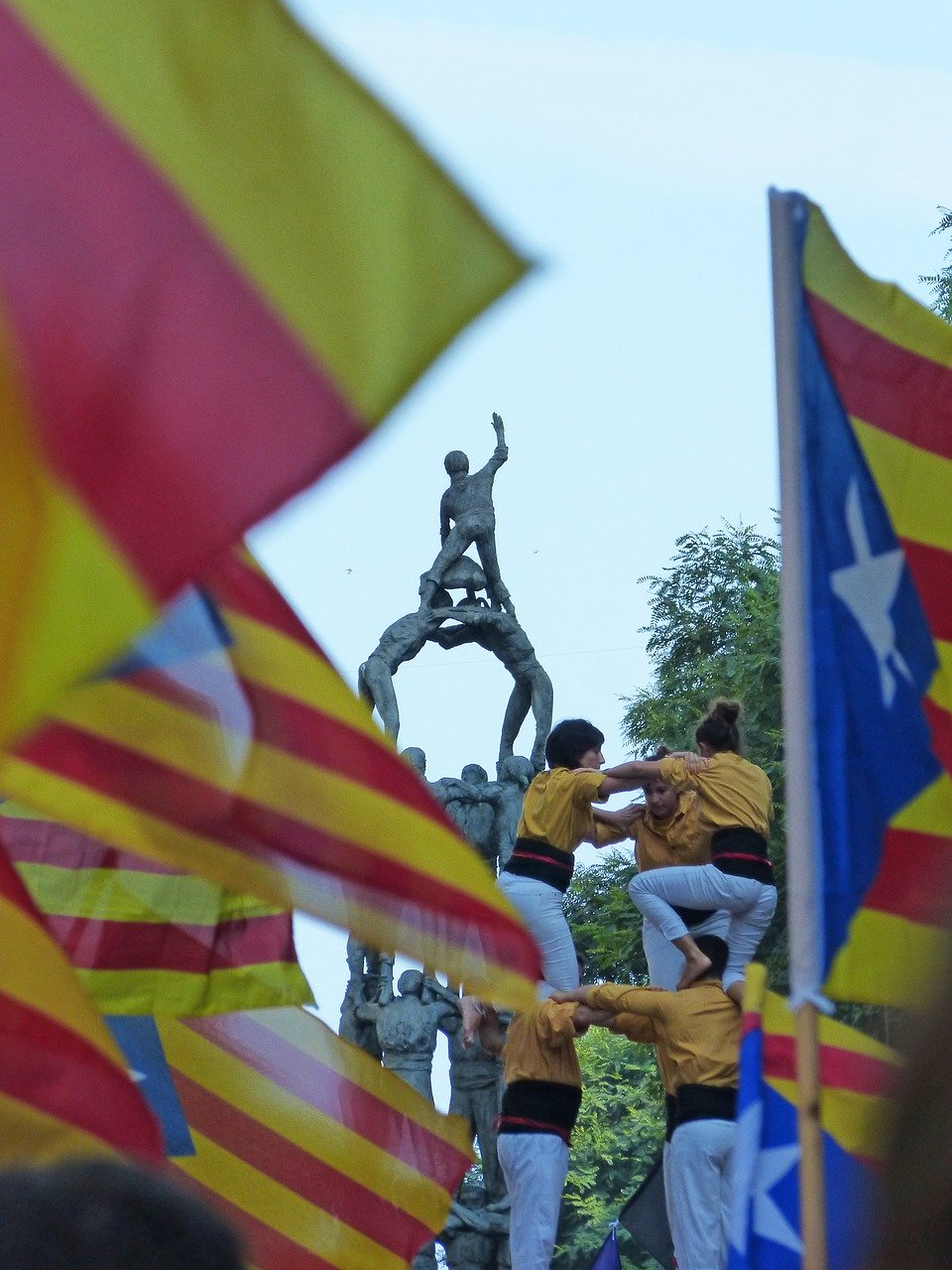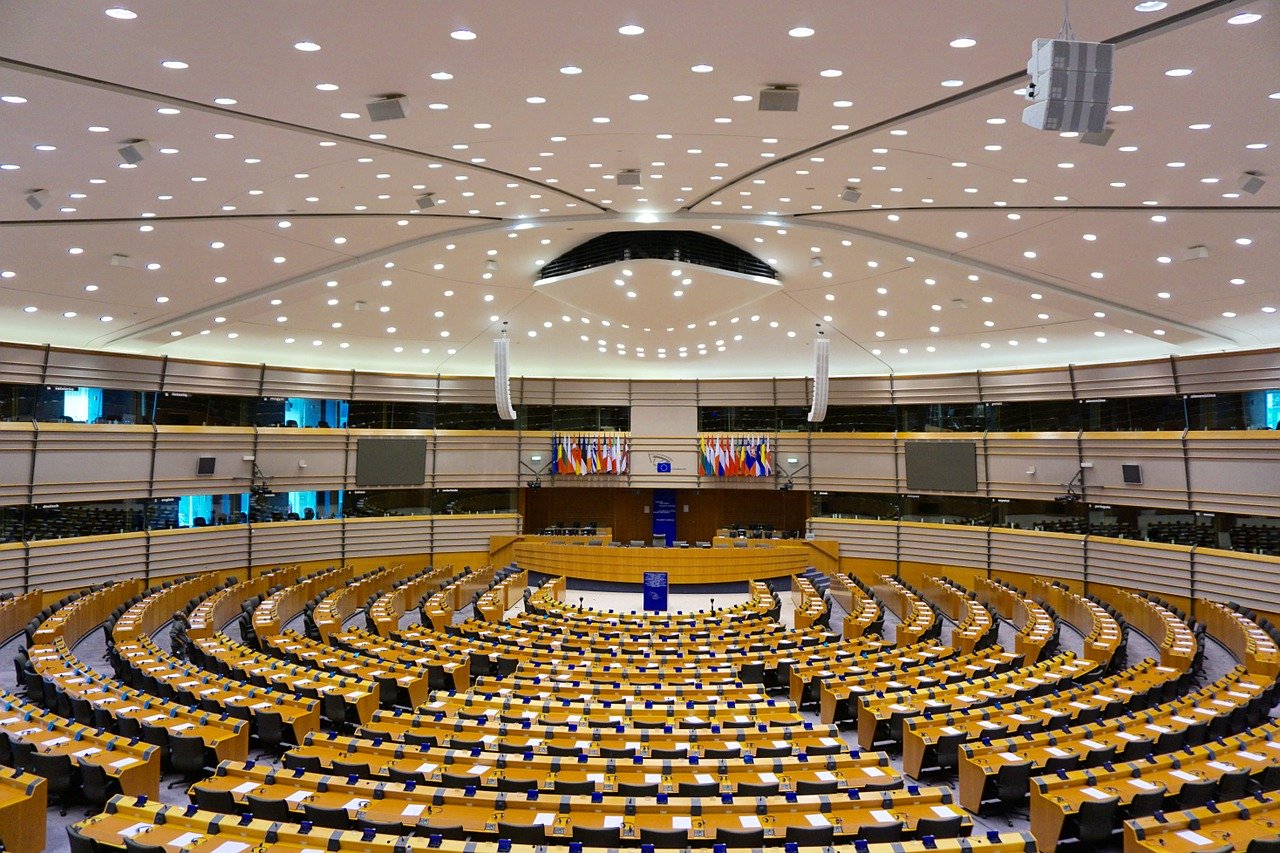Part I
Published on: 28 November, 2019
It has been a politically intense year for Spain. After general elections in April and the consequent negotiations dragging into the summer failed to produce a new government, a second general election on November 10 seems to have unblocked the political standstill, but, at the time of writing, Madrid is still without a government. Why has this happened and what does this mean for the EU?
Coalition-making and Catalan headaches
The Spanish socialist party (PSOE) stopped short of getting a full majority in the April general election, obliging the aspiring PM Pedro Sánchez to look for coalition partners. However, given the mistrust of the centrist liberal party Ciudadanos and the difficulties in negotiating a viable power-sharing agreement with the leftist Podemos, Sánchez was not able to win the confidence of the Spanish Parliament, pushing the King to dissolve the Congress and schedule a new electoral call for November 10.
In the meantime, the Catalan crisis was entering in a new phase, following the Spanish Supreme Court’s jail sentence of Catalan leaders involved in the Catalan independence referendum of 2017. In the midst of the electoral campaign, Catalonia once again got to the centre of the political debate, with renewed street protests and widely contrasting opinions on the recent sentence directly affecting the run up to the November elections.
PSOE was quick to defend the outcome of “el Procés” – the trial of Catalan separatists – explicitly committing to the full respect and implementation of the verdict. Pablo Iglesias, leader of the leftist Podemos, took a more nuanced position while accepting the Supreme Court’s decision. Unsurprisingly, strong condemnation and requests for amnesty were immediately expressed by Catalan separatist leaders and the president of the Catalan government.
On the centre-to-right end of the spectrum, political actors competed for the role of major antagonist to Catalan independence, in an escalation of political statements that eventually strengthened the political communication strategy of the far-right Vox party.

But the Catalan issue has not only provided fuel for heated electoral debates. It might as well decide the fate and direction of the next government led by Sánchez. With 700.000 votes lost compared to the April elections, the PSOE confirmed its top position on November 10, yet far from a solid majority. The leftist coalition led by Podemos came only in fourth place, losing seven seats, followed by the pro-independence Esquerra Republicana de Catalunya (ERC), with 13 seats. In comparison conservative parties did better, with centre-right Popular Party (PP) in second place, gaining 22 seats more, and the impressive results of far-right Vox which finished in third place by more than doubling its number of seats in the Spanish parliament.
The dismal defeat of liberal party Ciudadanos pushed Sánchez in looking to the left for a potential ally in a governing coalition, and this time Podemos’ leader Pablo Iglesias was quick to welcome the opportunity. The pact of the “abrazo” – literally “the hug” – referring to Sánchez and Iglesias hugging on 12 November when signing a preliminary commitment, has been presented to the respective party memberships. PSOE already confirmed a largely positive outcome, with Podemos and the other smaller left-wing parties of its left-wing coalition following suit. But the target of 176 seats necessary to obtain the confidence of the Spanish Congress is not yet met. Regional parties, some of them accounting for only a handful of seats, will be crucial to win the confidence vote.
Sánchez may have to rely on the 13 seats of pro-Catalan independence ERC – whose president, Oriol Junqueras, is currently serving a 13-years sentence for sedition – to consolidate his claim to the premiership. Given Sánchez’s position on the Catalan crisis and the recent sentence, ERC is now tying its support to a clear commitment by PSOE to an inter-governmental negotiating table between Madrid and the Catalan government – therefore implying an equal standing between the central and regional governments – to discuss the future Spanish-Catalan relationship, with assurances on a specific calendar and mechanism of implementation for the agreements achieved. The party leadership and its militant base have been clear that, without guarantees on this negotiating table, ECR will not support Sánchez’s appointment. At the time of writing, PSOE officials are meeting with ERC to explore possibilities, but the end result should not be taken for granted.

While moderates within PSOE and centre-right political figures are calling on Sánchez to avoid a pact with ERC, rather preferring a “constitutional pact” towards the political centre, the centre-right PP has made clear that no support whatsoever will be given to Sánchez’s premiership, regardless of the potential ERC involvement. Arguably, PP might see a possible abstention of Ciudadanos on Sánchez’s appointment as a further boon: on one side allowing Sánchez to form a government without need for a compromise with ERC on the Catalan issue; on the other, potentially further diminishing the remaining appeal of Ciudadanos towards moderates and centre-right voters. As early as 2020, with regional elections in the region of Galicia and the Basque country, PP could test its rediscovered power against an ailing Ciudadanos.
Vox still remains on the fringes of the competition for the premiership, but its 52 seats in Congress cannot be ignored anymore. Both forces on the left and the PP itself are increasingly worried about the quick rise of the far-right, with PP in particular seeing a strong competitor for its more conservative electorate in the south of Spain. Vox’s harsh stances on Catalonia, migration policy and its vocal criticism of the corruption of mainstream parties won a good part of disaffected voters. If there is a single fear which all parties share is that, failing the current coalition-making process, another electoral opportunity would further increase support for Vox.
The Spanish conundrum seen from Brussels
The dragging of the government-making process in Madrid and the Catalan crisis have had repercussions also at EU level.
Starting with the fate of Catalan MEPs Carles Puigdemont and Toni Comín currently in exile in Belgium, the EU court first supported the decision of then-EP president Tajani to deny them the MEP status – and therefore immunity – until the formal recognition by the Spanish authorities. A procedure that, entailing an official oath on the constitution in Madrid, would have implied the arrest of the two politicians as soon as they entered Spanish soil. Following the sentence of “el Procés”, a new EU arrest warrant led Puigdemont to appear voluntarily before the Belgian authorities, only to be soon after released on bail.
The treatment of Catalan leaders by Spanish authorities was vocally opposed by the Green/EFA political group in the EU Parliament, which considers Puigdemont, Comín and jailed ERC president Junqueras as legally elected MEPs of their group. A recent opinion of a senior lawyer at the EU Court of Justice rebuked the Spanish government requirements for an official oath in Spain, and linked the MEP status solely to the official declaration of the results by the EU Parliament itself. While the Court’s final ruling on Junqueras’ case will take a bit more time, the potential implications for the functioning of the EU Parliament are of great importance, especially regarding immunity from prosecution enjoyed by MEPs.
Following the opinion, a letter was sent to the EU Parliament President David Sassoli by lawyers of Puigdemont and Comín, demanding that their clients should be allowed to claim their status of MEPs. Sassoli has not provided a formal answer at this stage but, asked during a recent press briefing, the President hinted to the upcoming final ruling as a prerequisite for further action by the assembly.

Legal considerations aside, in case the EU Parliament will eventually be called to vote on the Catalan MEPs’ status, political divisions at Spanish level could be reflected in the EU assembly. Further inter-group strains in an already highly divided Parliament could also be compounded by intra-group political stress, for instance in the socialist S&D group where PSOE is represented; and even more in the Eurosceptic ECR group, where the Belgian Flemish nationalist of NVA and Spanish MEPs of Vox sit together but have totally opposed views on Catalan nationalism and self-determination.
Taking a step back and looking at the situation from a wider point of view, the potential coalition of PSOE, Podemos and ECR would present one of the most left-leaning government in the EU; A government which would very likely take a more proactive approach in public spending, therefore raising alarm in Brussels. The EU Commission has already highlighted the current Spanish draft budgetary plan as posing a risk of non-compliance with the Stability and Growth Pact in 2020, but reaction from Sánchez quickly followed. The PSOE leader reassured Brussels that public spending will be kept under control, and dismissed the fears of the markets that see coalition partner Podemos spearheading a Spanish government’s deviation from the agreed macro-economical template and an “anti-business” policy agenda.
Truth to be told, Sánchez is not yet in the position to be able to implement such promises, as negotiations on distribution of ministerial portfolios with Unidas Podemos continue, and the long-desired 176 confidence votes in his premiership are still to be secured. The PSOE leader may however find comfort in knowing that, with the start of the new Von der Leyen commission, he may hope for a more comprehensive – and politically akin – EU Commissioner for Economy, the Italian Paolo Gentiloni.
From Spain to the EU and back
It might still be too early to draw is still too early to draw conclusions on the negotiations in Madrid, but some key elements can be identified when considering the Spanish political dynamics as part of a wider EU context.
First, a new powerful far-right actor has conquered the political stage; and at an incredible speed. The ability to polarise the public opinion with radical, if not extreme, positions on complex issues, such as the Catalan crisis or migration policies, once again confirms its potential in disrupting the traditional political landscape and exposing the difficulties of mainstream parties to live up to the expectations of disaffected citizens.
The question now is how to deal with Vox, including the appointment of main figures within the Spanish congress. PSOE and Unidas Podemos are calling for a cordon sanitaire to avoid VOX to get hold of any seats in the bureau or committees’ presidencies. But PP has already announced that will not join such attempt, considering Vox as a legitimate party under the Spanish constitution. Is it reasonable to believe that, by allowing Vox to take active part to the functioning of a democratic society, its extreme political positions will somehow be normalised and contained within constitutional boundaries? This is a pressing question not only for Spain, but for many EU Member States seeing the rise of far-right forces.

Second, while the power of populist strategies in Spain was already deployed on the political left a few years back by Podemos, they do not seem to have worked well this time around. Podemos is surely paying the price of the failed negotiation after the April general elections, but arguably, its direct involvement with governing forces and mainstream parties may have partly tarnished its radical pedigree. Nonetheless, provided that Sánchez’s coalition wins the confidence vote, Iglesias and the Spanish left will have the opportunity to prove the viability of the implementation of their policy proposals. Podemos’ GUE/NGL allies in Brussels will surely be taking notes and drawing their lessons from this opportunity to move from traditional opposition roles, to being part of a governing force.
And third, the November election in Spain confirmed the death of a decades-long bipolar system that saw PP and PSOE competing with each other for the national government. Besides, not only parties on the left and right ends of the political spectrum have thrived, but also regional political formations - such as the Basque PNV or the Catalan ERC – show no sign of weakness. Emblematically, a new regional party operating in the land-locked and depopulated region of Teruel, made news headlines in Spain. “Teruel Existe” (literally: “Teruel exists”) was able to win one seat in the Spanish Parliament with a political programme highlighting the need of local communities faced with national and supranational dynamics: Market globalisation, competitiveness of local businesses, emigration of working population and lack of efficient local public services and infrastructures. Regional cohesion and centre-periphery relations surely remain crucial issues for Spain, but will play a big role also at EU level, when EU leaders gathered in Council and MEPs negotiate the next Multi-Annual Financial Framework of the Union and the Just Transition Fund needed to redistribute the costs of the upcoming green transition of the Union.
To conclude on a more general line, political fragmentation, both within the political centre and between centre and peripheral areas, makes politicy planning and implementation much more complex to manage. The consequent potential slowing down of the legislative and decision-making processes comes at a time of growing impatience by public opinion and emergence of radical actors, which in turn draw support from that very same sluggishness of the traditional political system.